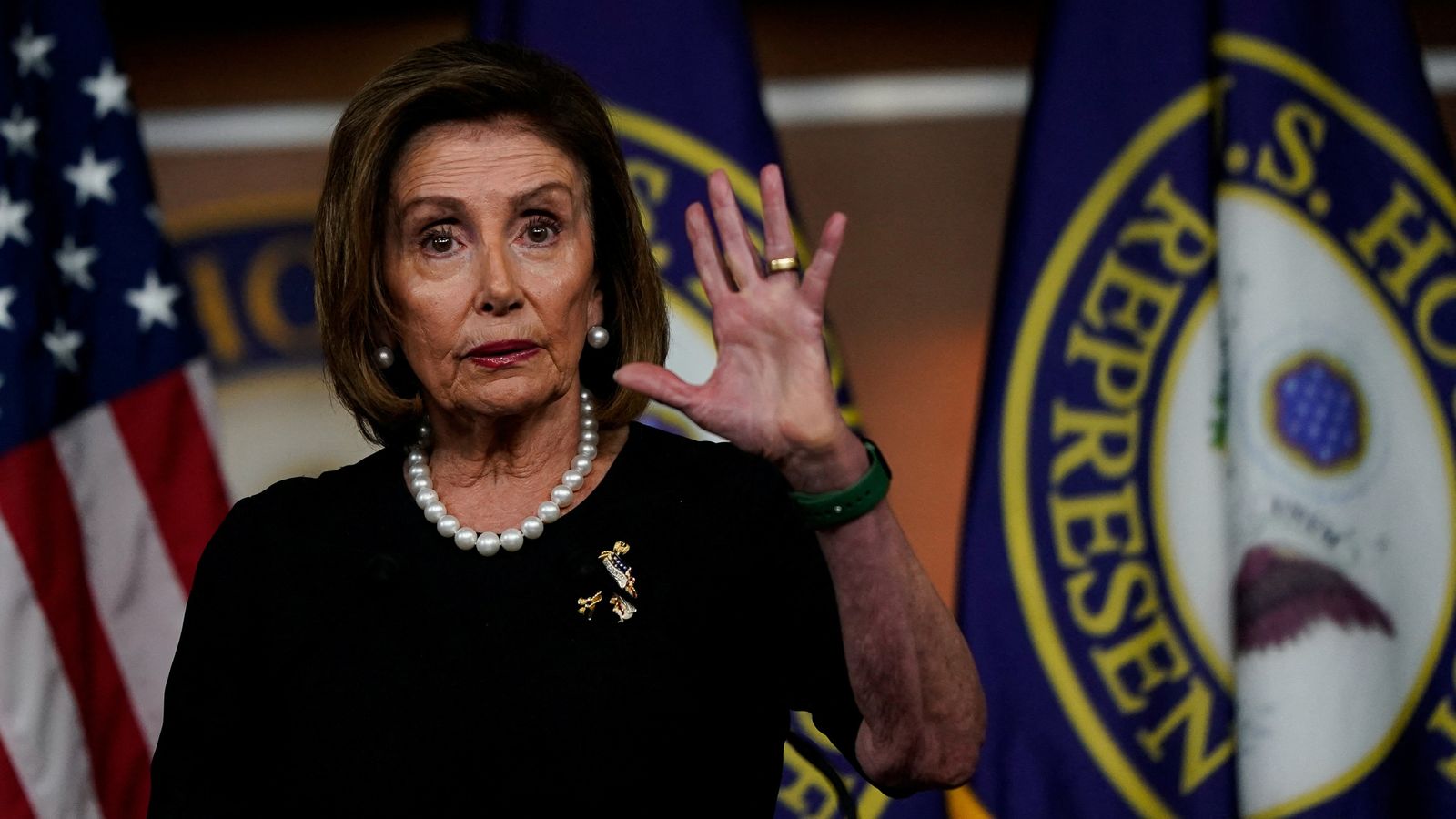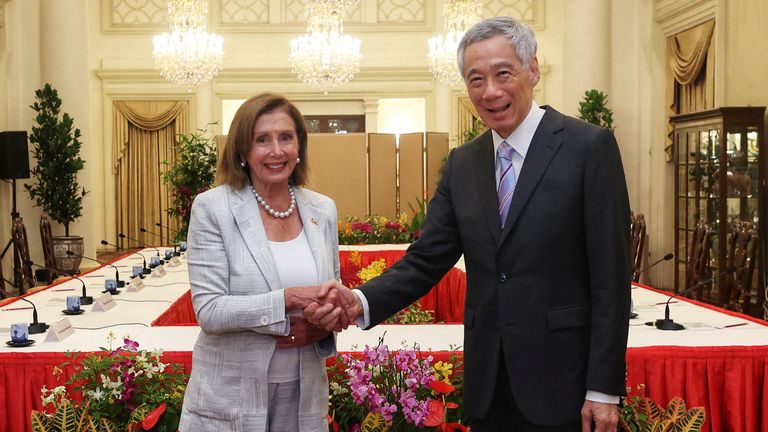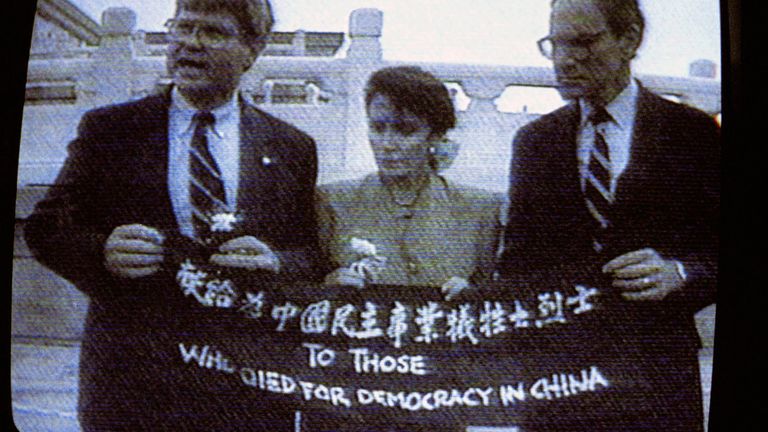US House Speaker Nancy Pelosi is set to arrive in Taiwan later today amid escalating tensions in Beijing over the impending visit.
While there has been no official announcement, local media in Taiwan has reported that Ms Pelosi will arrive in Taipei on Tuesday.
The US airforce jet that Ms Pelosi flew on to Malaysia has taken off from Kuala Lumpur – it is unclear if Ms Pelosi is on the plane, but the US Navy has simultaneously deployed four warships east of Taiwan.
A US official called these “routine deployments”.
Ahead of her arrival, China’s foreign ministry confirmed there had been communication with the US, adding it wanted to be “clear about the gravity and sensitivity of this matter”.
Ms Pelosi began a tour of four Asian countries on Monday, starting in Singapore. She arrived in Malaysia on Tuesday for the second leg, where she met lower house Speaker Azhar Azizan Harun in parliament and then Prime Minister Ismail Sabri Yaakob.
China has threatened retaliation ahead of the visit, driving concerns of a new crisis in the Taiwan Strait.
Read more:
Badly timed Taiwan visit may have the US and China quietly walking into a crisis
China warns US not to ‘play with fire’ over Taiwan during two-hour call
The Taiwan question
Beijing, which regards Taiwan as a renegade province to be annexed by force if necessary, has warned of repercussions, saying its military will “never sit idly by” if Ms Pelosi pushes ahead with the visit.
The country regards Taiwan as part of its own territory and sees contact between US officials and the country as an encouragement to make its decades-old de facto independence permanent.
The visit would make her the highest-ranking elected US official to visit in more than 25 years.
On Monday, the White House hit back at Beijing’s rhetoric, and said the US has no interest in deepening tensions with China and “will not take the bait or engage in sabre-rattling”.
White House National Security Council spokesman John Kirby said the administration is concerned Beijing could use the visit as an excuse to take provocative retaliatory steps, including military action – such as firing missiles in the Taiwan Strait, or carrying out large-scale naval exercises.



